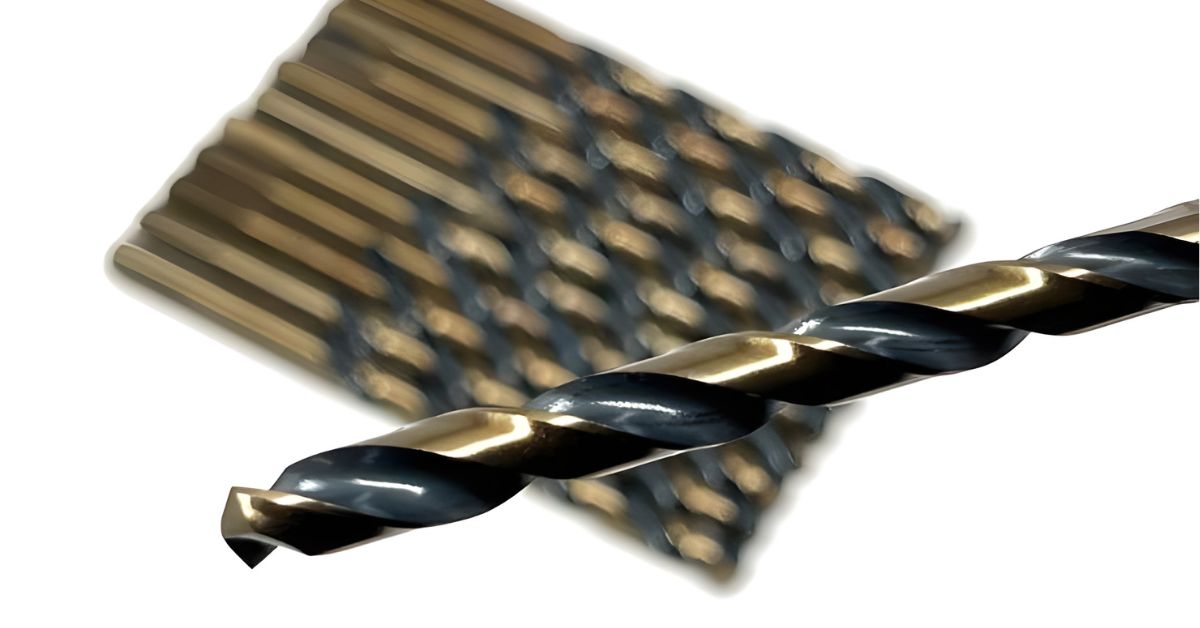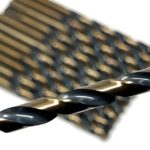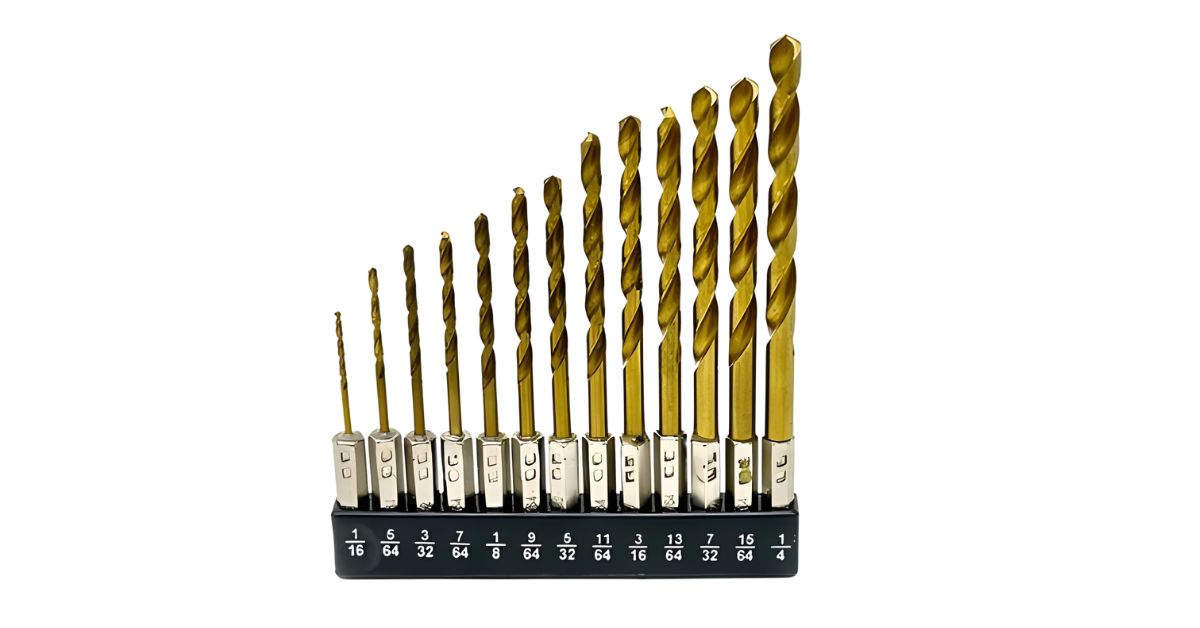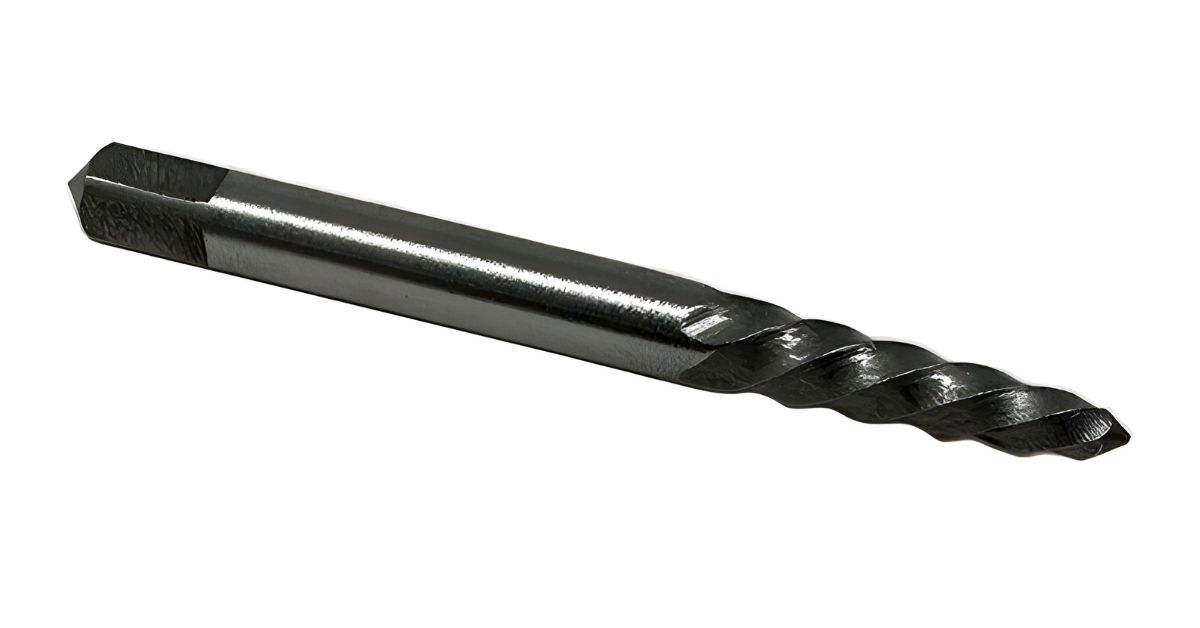Marine contractors who build boat docks, repair boats, and manufacture watercraft vessels need reliable, heavy-duty tools to deliver quality work that satisfies their clients. Quality drill bits are essential for completing these specialized marine jobs successfully.
Marine professionals work with diverse materials across various vessels and structures. This guide helps you complete work more efficiently by matching the right drill bits to each material you will encounter. Let’s explore the types of drill bits that are best for marine applications.
Cobalt Drill Bits
Cobalt drill bits are known for their resilience and ability to maintain their cutting edge. These drill bits are crafted from a blend of cobalt and steel to endure extreme temperatures. These qualities make them perfect for marine construction and repair. Read on to learn about the materials you can use with cobalt drill bits.
Hard Steel Applications
If you must drill through hard steel in a ship’s hull, a cobalt drill bit is one of your best options. Their superior heat resistance and durability allow them to cut through materials precisely and efficiently. In addition, their unique composition reduces wear and tear, resulting in reliability for high-demand tasks.
Plastic Applications
Cobalt drill bits excel well when working with plastic components in marine environments. If you are constructing or repairing a boat, you may encounter plastic in the hull, deck, windows, and other vessel components.
Docks also frequently incorporate plastic components. Cobalt drill bits provide a solid solution for creating precise holes through thick or layered plastic material. Professionals prefer these premium bits because they can produce clean, accurate holes without creating stress points that could compromise the material.
Carbide Drill Bits
Carbide drill bits stand among the toughest, most durable options available. These bits are crafted from tungsten carbide for heavy-duty performance. They feature outstanding durability and resistance to corrosion and wear. Marine professionals frequently turn to carbide drill bits when tackling the demanding materials encountered in marine environments.
Stainless Steel Applications
Drilling through stainless steel requires precision and strength, which makes carbide drill bits indispensable. Due to its corrosion resistance, stainless steel is common for creating marine equipment, from yacht fittings to dock fasteners. However, its toughness presents significant challenges without a durable drill bit.
Carbide bits deliver clean, smooth cuts without quickly dulling. Its resistance to heat buildup lets you work efficiently without compromising on quality, which is crucial when workers must perform yacht or dock repairs under tight project timelines.
Aluminum Applications
Aluminum’s lightweight properties make it a favorite for marine structures and boats, but drilling through it can wear down some cutting tools. Carbide drill bits handle aluminum’s unique properties perfectly, delivering precise cuts without suffering the typical damage that lower-quality drill bits experience.
Professionals choose carbide drill bits for aluminum applications because they can produce clean, burr-free holes in yacht hulls, dock platforms, and boat components. This exceptional cut quality facilitates smooth assembly and welding during later construction stages.
Acrylic Drill Bits
Thanks to their lightweight and corrosion-resistant nature, acrylic and plastic materials are integral to marine projects. However, they demand specialized tools for accurate and damage-free drilling. You may be surprised to learn that you can use drill bits made from acrylic to meet this goal.
These bits produce smooth edges when you take on tasks like boat repairs. They also feature cutting edges designed for brittle materials. This makes them ideal for crafting exact, crack-free holes in complex and delicate acrylic components.
Tips for Using Drills in Marine Settings
Now that you know the types of drill bits that are best for marine applications, it is essential to understand how to use them in these settings. Whether you’re working aboard a yacht or repairing dock equipment, proper precautions with drills protect you and extend the lifespan of your tools. Read the tips below to ensure that your tools stay reliable, even when you are working under tight project schedules.
Remember To Inspect Your Equipment
Before tackling any marine project, always examine your drill and bits for wear or damage. Saltwater buildup and exposure to moisture over time corrode metal components. Inspecting your equipment prevents malfunctions leading to poor results and safety hazards.
Look for surface rust, chipping, bending, or dull cutting edges. Addressing these problems before moving forward helps maintain precise cutting and consistent results throughout your project.
Protect Yourself With PPE
Personal Protective Equipment (PPE) is fundamental when operating drills in marine environments. Flying debris, sharp metal edges, and potential machine slipups make wearing safety gear non-negotiable. Safety gloves, goggles, and ear protection should always be in your toolkit.
Protective goggles shield your eyes from debris when working on dense materials like stainless steel or hard plastics. Quality gloves improve grip while protecting your hands. Ear protection minimizes exposure to loud drilling sounds that can damage your hearing over time.
Be Careful Using Tools in Wet Environments
Marine work often involves wet conditions, where damp surfaces can create electrical hazards and threaten stability during drilling. When working in these environments, prioritize keeping your workspace dry and using tools with proper waterproofing features.
Steady footing is critical when drilling. Clear away standing water and excess moisture from your work area to prevent slips while working. Compact spaces on boats and docks demand extra care. Make sure you maintain full-body stability so you can stay safe while drilling.
Store Your Equipment Properly Afterward
Post-project maintenance is critical for prolonging the life of your drill bits and tools used in marine applications. Saltwater exposure accelerates corrosion, even if left unattended for short periods. Once drilling tasks are finished, thoroughly clean your tools to remove moisture, debris, and chemical residues.
After cleaning, dry your equipment thoroughly and apply lubricants when necessary to prevent rust. Store them in a dry, temperature-controlled environment rather than exposing them to moisture or direct sunlight. Proper storage keeps your tools ready for the next challenging task at hand.
Prepare For Your Next Marine Task with Drill Bit Warehouse
Your choice of drill bit can determine the quality of your work when working in a marine environment. Use the information above to ensure you can take on your next task with confidence and expertise.
Drill Bit Warehouse offers a comprehensive selection of premium-quality, high-speed drill bits for marine projects. Our drill bits meet rigorous quality standards that ensure exceptional performance in demanding marine environments.






